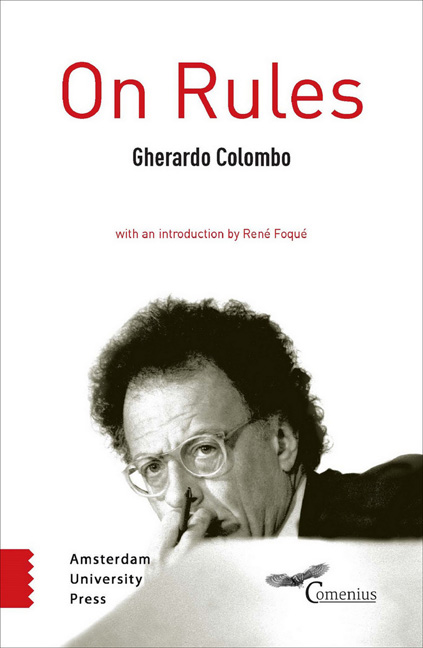Book contents
- Frontmatter
- Introduction: Gherardo Colombo’s Concern for the Democratic State under the Rule of Law: A Work in Progress
- Why?
- 1 An Imaginary Country
- Contents
- Part I The Ambiguities of Justice
- Part II Horizontal Society and Vertical Society
- Part III Towards a Horizontal Society
- Part IV How Do We Get There?
- Conclusion
- Acknowledgments
31 - Self-Awareness
Published online by Cambridge University Press: 24 December 2020
- Frontmatter
- Introduction: Gherardo Colombo’s Concern for the Democratic State under the Rule of Law: A Work in Progress
- Why?
- 1 An Imaginary Country
- Contents
- Part I The Ambiguities of Justice
- Part II Horizontal Society and Vertical Society
- Part III Towards a Horizontal Society
- Part IV How Do We Get There?
- Conclusion
- Acknowledgments
Summary
There are people who claim they share a belief in the organisation system of the horizontal society, but in fact are in no way confident that it can be attained. The result is that they consciously accept some, even major, aspects of the vertical model.
The horizontal society presupposes a recognition of and respect for your own value and dignity, as well as of those of others. This implies the awareness that you can be the author of a new society.
During the public meetings I happen to participate in, I often direct people's attention to the responsibility of individual citizens in the malfunctioning of justice. Often times, people express a lack of confidence in their own potential, and I am asked, as if the implicit answer were ‘no’, whether individuals can have access to the means of enforcing legality, and what these means are. The feeling of one's own importance is expressed very clearly. ‘How can you teach young people to respect rules in a world where mass media, and often the family itself, sometimes colleagues, are spreading a culture of the exact opposite?’ teachers ask. ‘How can I educate my children to follow rules when, taking a look around themselves, they see that connections in high places and arrogance prevail?’ parents ask. ‘How can I persuade myself to keep being respectful and uncompromising when I see that this brings me disadvantages, while people who deceive and fail to respect others always win?’ ask citizens from all social backgrounds.
Sometimes the question is purely rhetorical: it is simply a way of justifying one's own lack of engagement. ‘School, family, television, politics, all the institutions are spreading a way of thinking whereby rules are a surplus that can be disposed of, a burden that only creates obstacles, an unjustified way of restricting freedom. Since all these sources of persuasion are so powerful, widespread, deeply rooted, and convincing, I, as an individual, have no means, cannot do anything: I don't have the power to make a difference. The responsibility is not mine; it belongs to the school, the family, television, politics, and the other institutions. They, not I, should take steps to ensure that rules are respected.’
- Type
- Chapter
- Information
- On Rules , pp. 135 - 141Publisher: Amsterdam University PressPrint publication year: 2016

